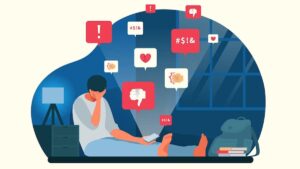Digital Therapies: A New Frontier in the Healthcare Sector

Digital therapies are increasingly under the eye of professionals in the healthcare field. Through mobile applications, software programs, artificial intelligence and multiple digital tools, the advance of this type of therapies has been made possible in Europe. There was a growing interest from the old continent in digital therapies to improve the efficiency and accessibility of healthcare services. Thanks to current technological developments and the increased adoption of mobile devices, the road has been cleared for the integration of digital therapies into healthcare systems.
Digital therapies span a wide range of areas such as chronic disease management, general wellness, mental health and self-care. These interventions can include physical exercise programs, cognitive behavioral therapies, health and nutrition monitoring programs, and anxiety and stress management support tools. In many European countries, programs and policies have been implemented to encourage the adoption and development of digital therapies. For example, in the United Kingdom, the National Digital Therapies Program has been established by the National Health Service. It evaluates and approves digital applications and programs for the treatment of various physical and mental health conditions. Currently, the United Kingdom authorized the launch of an application that serves as a replacement for drugs in patients with insomnia and avoid falling into possible addictions. The application is called Sleepio and is a digital therapy program of six weekly 20-minute sessions of cognitive behavioral therapy to combat insomnia. It will have an estimated cost of 45 pounds, which will be covered by the Public Health System. On the other hand, in Germany, the Health System has begun to recognize and reimburse some digital therapies. The country’s Federal Health Insurance Commission has approved the financing of mobile applications for the treatment of mental health disorders such as anxiety or depression. As mentioned in a previous article. Germany is a pioneer when it comes to healthcare apps and their digital therapies. In 2019, together with the approval in parliament of the Digital Provision Act – Digitale-Versorgung-Gesetz (DVG), they started to create an ecosystem with which they seek to digitally transform the German healthcare system with DiGA: a digital healthcare application with two characteristics: 1) being certified as a “medical device” and 2) that its main functionality is digital technology. DiGA can only be used by the patient or the healthcare professional.
In Spain, there are still no specific regulations for digital therapies. Some Spanish institutions have developed applications and programs for digital therapies such as “Braingaze”. This allows the treatment of cognitive disorders in children with ADHD without drugs. This advanced eye-tracking hardware captures involuntary movement patterns and provides clinics with optimal accuracy in diagnosis, giving objectivity, time savings and improved interaction with the patient.
In other European countries such as France, Sweden and the Netherlands, initiatives are also underway to evaluate and regulate digital therapies, with the aim of ensuring their efficacy, quality and safety. While they offer potential benefits, such as increased accessibility, convenience and personalization of treatments, they also raise new challenges and ethical considerations. Digital Therapies are gaining momentum in Europe as an innovative way of delivering therapeutic interventions. With the adoption and regulation of new technologies, they are expected to play an increasingly predominant role in improving healthcare and patient wellbeing.




